Thomas de Hartmann: Orchestral Music
Born in Ukraine, Thomas de Hartmann (1885–1956), a student of both Arensky and Taneyev, achieved fame as a composer in Russia in the early 1900s, and his concert music was later played by some of the major musicians of the day, primarily in Paris. Since his death, he has been remembered mainly for his association with the Caucasian mystic G. I. Gurdjieff, whom he met in 1916, and his output for the concert hall has fallen into obscurity. The four works receiving their first recordings here reveal a major late-Romantic voice, downstream from Tchaikovsky, contemporary with Rachmaninov, and alert to the discoveries of Stravinsky and Prokofiev
Bülent Evcil, flute (Track 11-13)
Lviv National Philharmonic Orchestra of Ukraine
Theodore Kuchar, conductor
Listen To This Recording:
-
Koliadky: Noëls Ukrainiens, Op. 60 (1940)
- I Chant spirituel
- II Viens, Koladá, viens
- III Les rois mages
- IV Les chalumeux des bergers
- V L’arrivée de Koladá
- VI Ovsén
- VII La veille de l’Épiphanie
- VIII Adieu, Koladá
- IX Goussak
- Symphonie-Poème No. 4, Op. 90
- I Entrada y Romanza
- II Juego: Scherzino
- III Cante y Juerga
- I Ouverture
- II Fanfare
- III Allemande
- IV Courante
- V Fanfare et Sarabande
- VI Gavotte
- VII Matradour
- VIII Canari
- IX Incantation et danse du Chamane
- X Nocturne
- XI Danilo Coupor
Symphonie-Poème No. 4, Op. 90 (1955)
Concierto Andaluz for solo flute, strings and percussion, Op. 81 (1949)
Une fête en Ukraine: Suite for Large Orchestra , Op. 62 (1940)
FIRST RECORDINGS
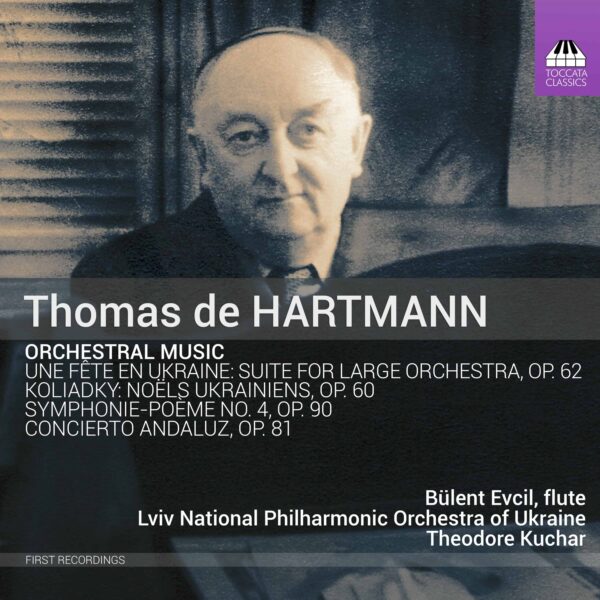
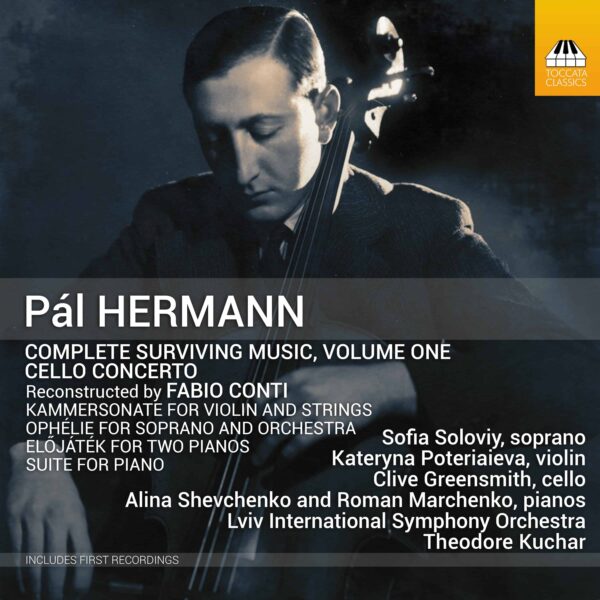
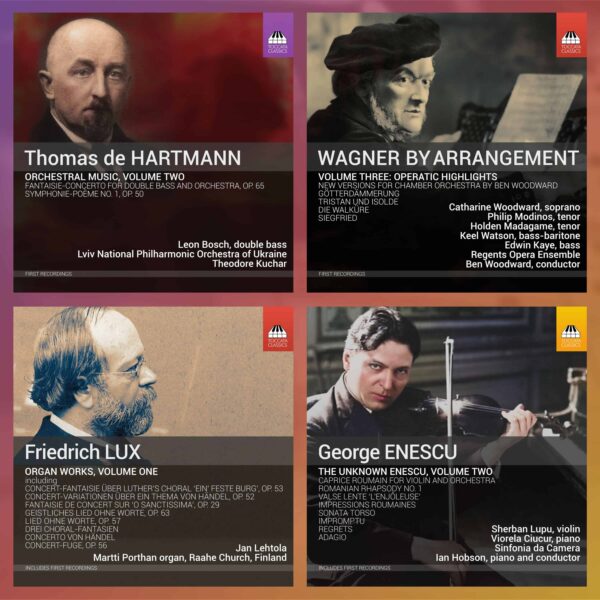
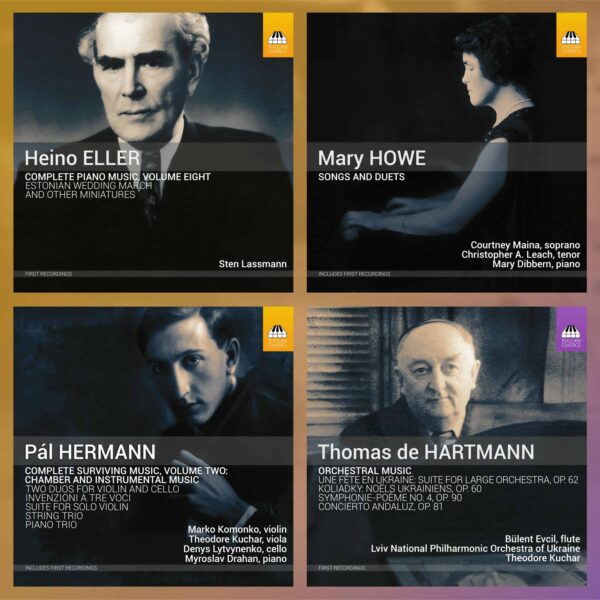
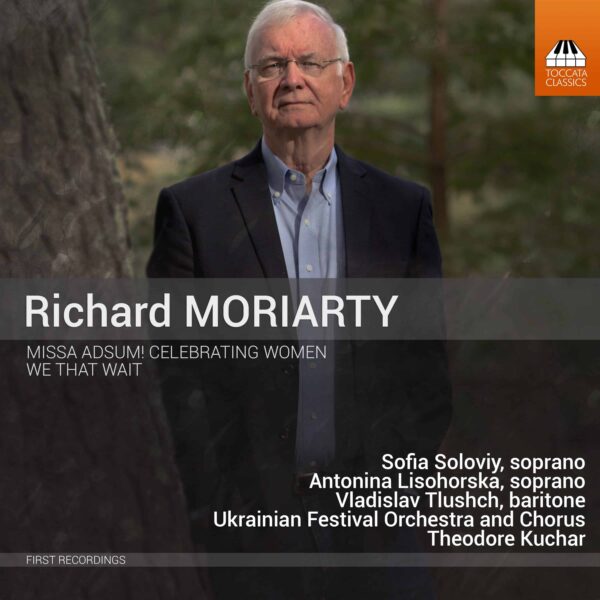
MusicWeb International :
‘The sound is rich and full, and the music-making under the conductor Theodore Kuchar and the Lviv National Philharmonic Orchestra of Ukraine, as well as the excellent flautist Bulent Evcil in the concerto, is as committed and persuasive as anyone could wish for. […] All the music on this disc is highly distinctive and hugely enjoyable. Meantime, the present release is recommended with much enthusiasm as is, at long last, the music of Thomas de Hartmann in general.’
—Lee Denham, MusicWeb International
MusicWeb International :
‘Theodore Kuchar leads the Lviv National Philharmonic Orchestra of Ukraine in confident, stylish performances. Flautist Bülent Evcil sounds alternately poised and relaxed in the Concierto Andaluz. Balances between soloist and orchestra, as well as within the orchestra, are clear, with no details getting lost.’
—Christopher Little, MusicWeb International
MusicWeb International :
‘This is a perfect example of projects which small companies do so well, and which the large multinationals seem to have abandoned. […] On this showing of works from his maturity, he had his own voice and the orchestral mastery to match. Toccata Classics have done us a service. […]
All in all, this most welcome disk will be of considerable interest to those of us who love to investigate the byways of the music of the late 19th and early 20th Century.’
—Jim Westhead, MusicWeb International
The Ultimate Classical Music Guide by Dave Hurwitz :
‘…boy I have a discovery for you. It is this amazing disc on Toccata Classics […] featuring Theodore Kuchar, one of the best conductors out there without a doubt. […]
de Hartmann was also a composer of considerable ability all by himself […] his music was lovely, and this is the first disc of his own orchestral music […] this contains some of his most Ukrainian influenced music which is just astonishing. […] [the orchestra] is an excellent orchestra, really first rate as they sound here on this disk which is splendidly recorded. […]
everyone should have this, EVERYBODY!!! […]
[Koliadky: Noëls Ukrainiens] are gorgeous. […] the orchestration is exquisite […] the tunes are so haunting, oh my godness, where has this been all my life[…] he had a fabulous imagination. […]
The booklet is wonderful too, it’s very detailed […]
[Symphonie-Poème No. 4] is really cool, it’s like five and a half minutes of orchestral colour, oh it’s just really nifty […]
[Concierto Andaluz] is extraordinarily by the Turkish flautist, Bülent Evcil […] the orchestration is incredible, colourful, sensitive […]
[Une fête en Ukraine] is a wonderful piece […]
if you like [Russian] composer, you really gonna like [de Hartmann] […] his music is amazing […] [he’s] taking elements of different styles and idioms and welding them into a wonderfully coherent and entertaining and enjoyable whole and as I said, the performance here with Theodore Kuchar and the Lviv National Philharmonic Orchestra of Ukraine is marvellous, the sonics are terrific […]
Just get it, it’s wonderful, wonderful stuff and you’ll be in on a ground level because more discs of orchestral music are coming and you going to want to collect them as they arrive, I guarantee it, I really do.’
—David Hurwitz, The Ultimate Classical Music Guide by Dave Hurwitz
Finding Beauty in Ephemera :
‘This release provides a fine overview of this often-overlooked composer. […] Koliadky is a beautiful work. And it captures the spirit of Ukrainian Christmas tradition. […]
The Lviv National Philharmonic Orchestra of Ukraine has a nice full sound. The recording has a lot of room ambiance, but it works. It sounds like these compositions have room to breathe.
This is fascinating music from a composer I had never heard before. I’m very glad to see there’s a volume two already in the works. ‘
—Ralph Graves, Finding Beauty in Ephemera
Classics Today :
‘Fabulous de Hartmann Premieres on Toccata from Kuchar and the Lviv Philharmonic
Artistic Quality: 10
Sound Quality:10
[Thomas de Hartmann] was a composer of considerable talent. The four pieces offered on this splendidly performed and engineered disc are all premieres, part of a larger project to records all of his major works on a variety of labels. […]
[Koliadky] is simply exquisite: haunting and unforgettable in its purity and simplicity. […] Symphonie-Poème No. 4 is […] a wonderfully bold, colorful orchestral extravaganza that whets the appetite for the earlier “symphonies-poèms,” the first of which lasts over 66 minutes and ought to be quite something (or so I’m told). It’s been recorded by these forces and hopefully we’ll have a chance to hear it soon.
Turkish flutist Bülent Evcil does an excellent job in capturing [The Concierto Andaluz’s] high spirits and exotic lyricism, while Kuchar’s accompaniments are by turns sensitive and swaggering. […]
I have no hesitation in regarding this release as one of the great discoveries of recent years. Thomas de Hartmann was the real deal. […] Don’t miss it!’
—David Hurwitz, Classics Today
The Art Music Lounge :
‘[Koliadky is] sure to be an audience-pleaser with the vast majority of classical listeners who are frightened and/or disturbed by anything resembling modern harmonies. […] Kuchar gives the livelier passages a nice “bounce,” however, and the Ukrainian orchestra plays it with great affection. […]
As usual, his sense of construction [in Symphonie-Poème No. 4] is impeccable. […] De Hartmann varies his themes as well as his tempi, moving things around and contrasting his material with excellent results, packing a great deal of interesting material into its brief duration. […]
The Concierto Andaluz is also quite adventurous. Those listeners familiar with the extremely popular Rodrigo version of the Concierto Andaluz will surely be surprised to hear de Hartmann’s take on it; the themes he used were entirely different, and despite much of it being tonal (and very much geared towards the solo flute) he again holds the listener’s interest by means of much more varied melodic, harmonic and rhythmic devices. Very little of this music (aside from the lyrical flute solos) is predictable; he clearly used his imagination in creating this work. The third movement in particular, marked “Cante y Jurga,”is surprisingly dramatic, using short motifs for the solo flute against a dolorous theme for the cellos in the minor before shifting gears into a jaunty 6/8 rhythm in which he also subtly changes keys—and then, changing again into a major-key theme with strong Spanish rhythms.’
—Lynn René Bayley, The Art Music Lounge
Classical Lost and Found :
‘The Lviv National Philharmonic Orchestra of Ukraine (LNPOU) under its “Conductor Laureate”, American-born Theodore Kuchar (b. 1963) delivers committed performances of music by one of its native sons. A big round of applause also goes to Turkish flautist Bülent Evcil (b. 1968) for his superb playing in the Concierto… [T-11]. […]
His flute is beautifully captured as are all the many other instrumental soloists and groups called for in Thomas’s colorful scores. […]. Taking everything into consideration, this release is as good as conventional CDs get.’
—Bob McQuiston, Classical Lost and Found
Arcana.FM :
‘Concierto Andaluz packs a considerable amount into its 10 minutes. Whether in the plaintive lyricism of the Entrada y Romanza, the fleet-footed and capricious Scherzino that is Juego – its winsome trio providing for necessary contrast, or the sultry evocation of Cante y Juerga, this is something of a hidden gem from the repertoire of concertante works for flute and deserving of greater exposure. Bülent Evcil leaves no doubt as to his advocacy. […]
Does it all work?
Pretty much. That all four of these pieces are from de Hartmann’s maturity means that such influences as there were of earlier composers, primarily the melodicism of Tchaikovsky and harmonic innovations of Rimsky, have been subsumed into a more astringent while always eventful idiom. Both the shorter pieces would make attractive additions to a concert, and the larger collections each feature several items that are worth encountering in their own right – maybe as encores to round-off a programme from one of the more enterprising orchestras.
Is it recommended?
Yes, not least with the Lviv National Philharmonic giving of its best under the astute direction of Theodore Kuchar. Unexceptionally fine sound, with exceptionally detailed annotations from John R. Mangan and Evan A. MacCarthy. A follow-up volume of de Hartmann is imminent.’
—Richard Whitehouse, Arcana.FM